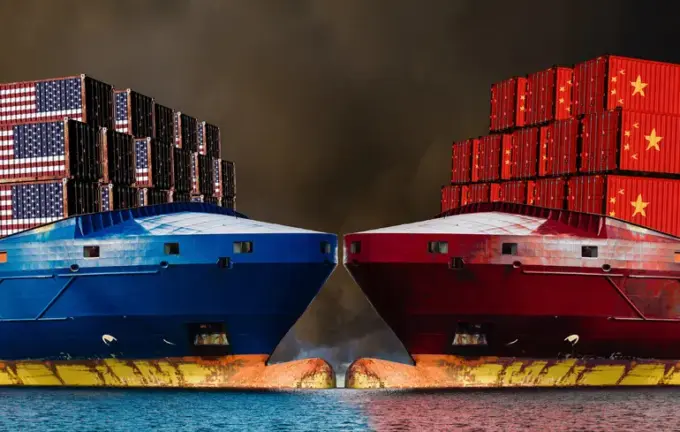China and the USA in Trade Warfare: Who Has the Power to Strike Harder?

Recent analytical reports and financial news highlight that in the ongoing trade confrontation between the two largest economies in the world — China and the United States — China appears to have a significant advantage in executing swift and impactful responses that could challenge Washington’s position.
Tensions have escalated around the U.S.
administration’s attempts to forge a new trade deal with Beijing, despite harsh rhetoric and threats from both sides.
A particularly sensitive issue is China’s recent threat to limit or entirely halt exports of rare-earth minerals — some of the most critical resources vital for modern technology.
Such measures could substantially disrupt American manufacturing, especially industries dependent on these materials, including high-tech devices.
Experts warn that if China proceeds with these restrictions, many U.S.
factories could cease operations, leading to a severe economic downturn.
Meanwhile, a new element has entered the playing field: China monopolizes the supply of over 700 essential medicines, including those used to treat cancer, heart diseases, and allergies, making the U.S.
highly vulnerable.
As geopolitical tensions intensify, both nations seek leverage points, but China’s current dominance in these critical areas gives it a strategic advantage.
Further escalation could occur if trade hostilities intensify, with potentially catastrophic consequences for the global economy.
American efforts to maintain technological supremacy are becoming less effective due to waning international trust in U.S.
sanctions and tariffs.
While Washington attempts to curtail China’s technological growth, Chinese tech firms are developing alternative solutions, including breakthroughs in artificial intelligence, rivaling American leaders like OpenAI.
If the U.S.
eases trade restrictions, repercussions will extend beyond trade wars — notably in the event of conflict over Taiwan, where China could exert significant economic pressure using its control over military and industrial supply chains essential for platforms like the F-35 fighter jet.
However, prolonged trade conflicts will also harm China: despite some technological advancements, the Chinese economy remains heavily reliant on exports.
Domestic overcapacity and subdued internal demand threaten future growth.
Recently, U.S.
Treasury Secretary Scott Bessent accused China of deliberately harming the global economy, citing its restrictive policies on rare-earth exports, which reflect deeper economic issues.
The immediate future will depend on how these strategic tensions evolve and whether China can establish itself as a genuine world leader capable of rivaling the U.S.
— a question that remains open as both nations navigate their complex geopolitical and economic interests.

